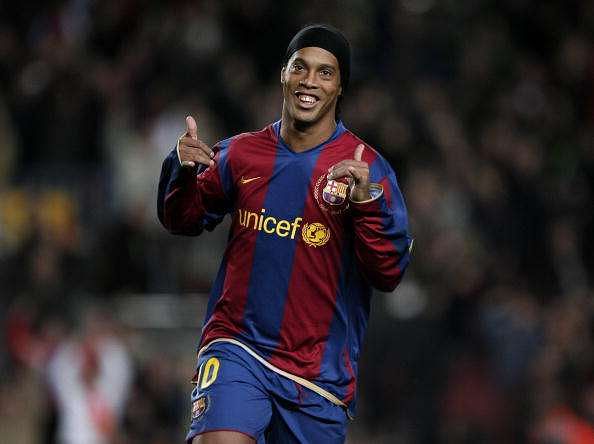
The Unfurling Tapestry: UCL Group Stage Drama & Facts
The UEFA Champions League, football’s premier club competition, is often synonymous with its electrifying knockout rounds. The gladiatorial clashes, the do-or-die encounters, and the sheer spectacle of the final dominate the headlines. Yet, beneath this shimmering veneer of the latter stages lies a fertile ground for drama, tactical intrigue, and statistical marvels: the group stage. Far from being mere preludes, these six matchdays – a double round-robin against three opponents – are a crucible where narratives are forged, underdogs roar, giants stumble, and the very fabric of continental football is tested. To truly appreciate the Champions League, one must delve into the chaotic beauty and undeniable facts of its opening act.
The Group of Death: A Footballing Hunger Games
Perhaps the most potent generator of group stage drama is the infamous "Group of Death." This is not an official designation but a fan-coined term for a quartet of teams, typically comprising three continental heavyweights and one strong contender, making progression an arduous task. The 2022-23 season offered a classic example with Bayern Munich, Barcelona, and Inter Milan vying for two spots, leaving Viktoria Plzeň as the sacrificial lamb. The consequence? One of Europe’s giants, Barcelona, found themselves relegated to the Europa League for the second consecutive season – a stark reminder that reputation counts for little when pitted against elite opposition.
These groups are a tactical chess match from the first whistle. Managers meticulously plan, considering not just wins but goal difference, head-to-head records, and even potential yellow card accumulation. Every point is a treasure, every goal a potential tie-breaker. The drama peaks on the final matchday, where permutations abound, and a single goal elsewhere can alter a team’s destiny. The beauty lies in the high stakes: seasoned champions are pushed to their limits, their squad depth tested, and their mental fortitude scrutinised. For neutrals, it’s an unadulterated feast of top-tier football, ensuring that even the initial fixtures carry the weight of potential elimination.
The Underdog’s Roar: David vs. Goliath Redux
While the "Group of Death" focuses on big teams battling, the Champions League group stage also provides the perfect stage for the ‘David vs. Goliath’ narrative. Smaller clubs, often champions of less prominent leagues, get their chance to test their mettle against the likes of Real Madrid, Manchester City, or Paris Saint-Germain. And occasionally, they pull off the unthinkable.
Think of Sheriff Tiraspol in the 2021-22 season, a club from Moldova, who shocked the footballing world by beating Real Madrid 2-1 at the Santiago Bernabéu. Or APOEL Nicosia, the Cypriot club that topped their group in 2011-12, overcoming Zenit Saint Petersburg, Porto, and Shakhtar Donetsk, before reaching the quarter-finals. These victories are not just about three points; they are moments of immense pride, financial windfalls, and global recognition for clubs that rarely feature on the biggest stage. The emotional outpouring from players and fans after such upsets is palpable, serving as a powerful testament to football’s unpredictability. These "facts" – that a team with a fraction of the budget can defeat a global behemoth – underscore the inherent drama of the competition. It’s a stark reminder that on any given night, anything is possible, fueled by passion, tactical discipline, and a touch of luck.
Last-Minute Thrillers & Improbable Comebacks
The Champions League group stage has a peculiar affinity for last-minute drama. Be it a stoppage-time equaliser that shatters qualification hopes, or a dramatic winner that seals passage, these moments are etched into memory. The tension of knowing a draw won’t suffice, or that a rival result is impacting your standing, often leads to frantic, end-to-end football.
Consider Atalanta’s remarkable run in the 2019-20 season. After losing their first three group games, they looked dead and buried. Yet, with a combination of late goals and favourable results elsewhere, they secured qualification on the final matchday with a 3-0 win over Shakhtar Donetsk – an improbable feat for a team making their Champions League debut. Similarly, teams have often salvaged draws or turned deficits into wins in the dying moments, showcasing incredible resilience. These instances highlight the fact that the game is never truly over until the final whistle, leading to heart-stopping moments for fans and pivotal shifts in group standings. The psychological impact of such moments, both positive and negative, can ripple through a team’s entire season.
Statistical Anomalies & Record-Breaking Feats
Beyond the drama, the group stage is a treasure trove of fascinating facts and statistics. Lionel Messi and Cristiano Ronaldo have, for years, dominated the goal-scoring charts, often setting new benchmarks for goals in a single group stage or consecutive group stage matches. Robert Lewandowski, Karim Benzema, and now Erling Haaland continue this tradition, racking up incredible numbers. Haaland, for instance, has repeatedly shattered records for the fewest games to reach certain goal milestones, showcasing the relentless attacking power of Europe’s elite.
On the team front, some clubs consistently achieve perfect records, like Bayern Munich or Real Madrid, accumulating 18 points from six games – a testament to their unwavering dominance. Conversely, other teams have famously ended with zero points, highlighting the immense gulf in quality that can sometimes exist. The highest-scoring group stage match remains Borussia Dortmund’s 8-4 victory over Legia Warsaw in 2016, a chaotic display of attacking football. These statistical facts provide a quantitative measure of the drama, illustrating the extremes of success and failure within the competition. They also underscore the individual brilliance required to thrive at this level and the tactical strategies that can lead to overwhelming victories or demoralizing defeats.
The Managerial Chessboard & Tactical Evolution
The group stage is also a fascinating laboratory for tactical innovation and managerial prowess. With six distinct matches against three different opponents, managers must adapt their strategies, balancing domestic league commitments with European ambitions. Squad rotation becomes crucial, as does the ability to scout opponents thoroughly and exploit their weaknesses.
Managers like Pep Guardiola, Jürgen Klopp, and Carlo Ancelotti are masters of this art, often experimenting with formations or player roles in the group stage to prepare for the tougher knockout tests. The pressure to qualify early can influence decisions, sometimes leading to more cautious approaches, while other times encouraging an all-out attacking philosophy to secure top spot and a theoretically easier draw. The fact that group winners are seeded for the knockout draw adds another layer of tactical consideration – is it worth pushing for first place, or is merely qualifying enough? This strategic dance, often unseen by the casual viewer, is a vital component of the group stage’s inherent drama.
The Financial Stakes: More Than Just Bragging Rights
While sporting glory is paramount, the financial implications of the Champions League group stage cannot be overstated. Qualification alone guarantees a substantial sum, a lifeline for many smaller clubs and a significant boost for larger ones. Each win and draw in the group stage adds further prize money, and progression to the knockout rounds opens up even larger revenue streams from broadcast rights and gate receipts.
For clubs from less affluent leagues, participation can fund infrastructure improvements, youth academies, and allow them to retain their best players for longer. The drama of a club fighting for qualification isn’t just about footballing pride; it’s often about their very economic survival or prosperity. The "facts" of these financial figures underscore the immense pressure on players and coaching staff to perform, transforming every group stage match into a high-stakes encounter with ramifications far beyond the ninety minutes on the pitch.
Conclusion: The Unsung Hero of European Football
The UEFA Champions League group stage, often overshadowed by the high-octane drama of the knockout rounds, is in itself a vibrant, unpredictable, and indispensable part of the competition. It is where the initial narratives are spun, where underdogs dare to dream, and where giants are occasionally brought to their knees. From the intensity of the "Group of Death" to the sheer joy of a last-minute winner, and from the statistical marvels of record-breaking performances to the silent tactical battles waged by managers, the group stage unfurls a rich tapestry of drama and undeniable facts.
It is a demanding gauntlet, testing squad depth, tactical acumen, and mental fortitude over six arduous matchdays. It lays the crucial groundwork for what is to come, separating the contenders from the pretenders and setting the stage for the epic battles that follow. Without the unique challenges and compelling narratives of the group stage, the Champions League would lose a significant portion of its charm and indeed, its very essence. It is, unequivocally, the unsung hero that consistently delivers thrills, upsets, and indelible memories, proving that the journey to glory is often as captivating as the destination itself.


